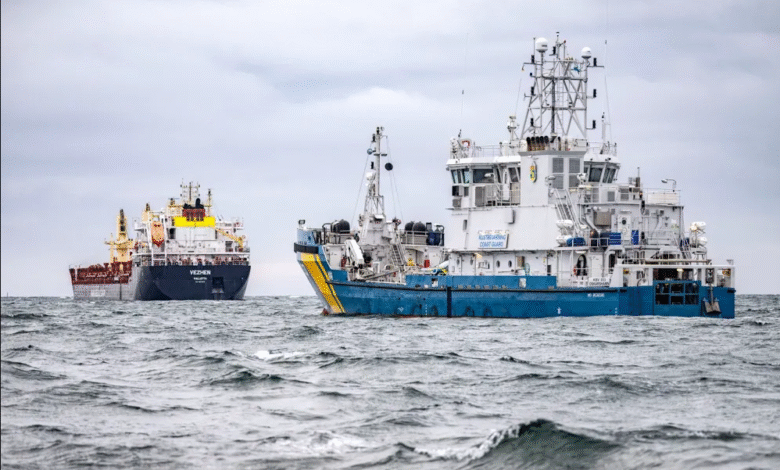Sweden and Denmark begin inspecting Russian tankers

Sweden and Denmark have begun to require Russian tankers passing through their territorial waters in the Baltic Sea to have certified insurance documents. Thus, the governments of these countries are trying to limit the activities of the Russian “shadow” fleet, informs Foreign Policy.
Ships without adequate insurance risk being blacklisted by the US, UK and EU, complicating Russia’s attempts to circumvent energy sector sanctions and finance its war against Ukraine.
“If we’re looking for the real problem, it’s those who don’t want to show their documents,” – said Kristina Sieg, professor of maritime law at the Southern University of Denmark.
The Russian “shadow” fleet consists mostly of old tankers with dubious insurance. Such vessels are often registered as front foreign companies, fly under “convenient” flags and avoid the services of pilots when passing through narrow straits. Denmark and Sweden fear that such vessels can cause large-scale oil spills or are used by Moscow for sabotage, in particular to damage underwater infrastructure.
On May 20, the EU introduced sanctions against the Russian insurance company TSK, which issued policies for vessels from the “shadow” fleet. According to Christina Sigg, this may deter cautious shipowners, but risky market players remain a source of threat, especially in the context of environmental security.
The “shadow” fleet of the Kremlin already looks like a monster created by its own hands. she added.
As the risks mount, Denmark, Sweden and Germany have moved more forcefully in the past year, applying stricter interpretations of maritime law — despite legal disputes that could affect freedom of navigation.
By the end of 2024, the “shadow” fleet has become the main route for the supply of crude oil from Russia to India and China. The US, EU and Great Britain are trying to limit this activity by regularly adding tankers to sanctions lists. In the 17th package of EU sanctions, 340 such vessels were recorded, and in the 18th, their number may increase to more than 400. In total, more than 10% of the world’s tanker fleet was under sanctions supervision.
Against this background, Russia’s oil and gas revenues fell to 494.8 billion rubles in June, falling below 500 billion for the first time since January 2023. For the first half of 2025, oil and gas revenues to the budget of the Russian Federation amounted to 4.73 trillion rubles — 18% less compared to the same period of the previous year.





